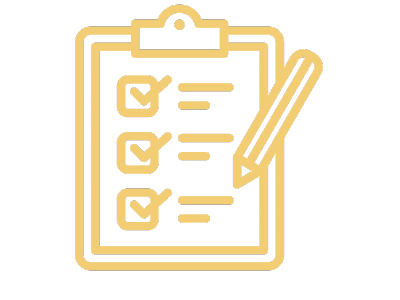The Loan Process (Mini) Overview


Pre-Approval
Before you start picking out your dream home, let’s do a quick check-up on your finances! Your home should fit nicely in your budget—kind of like a comfy pair of shoes. Don’t forget about extra costs like taxes, insurance, and fixing things up when needed. A good rule of thumb? Try to keep your house payment around 28-30% of what you make before taxes.
Besides your monthly house payment, you’ll need some extra cash for things like:
- Closing costs (about 2-5% of the home’s price)
- Down payment (usually 3-20%, depending on your loan)
- Reserves (emergency savings to make your monthly payments, just in case!)
- Earnest money (more buying power to you if your realtor recommends it)
Your credit score is like your grade for borrowing money— a higher score gets you a better interest rate! A score of 620 or above is best, but some loan programs allow scores as low as 500. Just remember, the lower the score, the more you’ll pay in interest and monthly payments.
Your Debt-to-Income (DTI) ratio is another important area—it’s the amount of debt you have compared to your income. Try to keep it at 36% or lower, but preferably not above 43%.
Feeling good about your money situation? Awesome! Now’s the time to get a mortgage pre-approval. This shows sellers you’re a serious buyer. You’ll need to gather some important papers, like:
- Recent pay stubs (1 month’s worth)
- W-2s or tax returns (for the past 2 years)
- Bank statements (last 2 months)
- Your address history (past 2 years)
- Your job info (past 2 years)


Loan Application Submitted
Once you’ve found the one, let us know! We’ll help upload your purchase agreement, and your pre-approval will turn into a mortgage application. You’ll get a loan estimate within 3 business days to review. If everything looks good, just let us know you’re ready to move forward!
An appraisal will also be scheduled to make sure the home’s value is on point. If the appraisal comes in lower than the sales price, you have three choices:
- Ask for a lower price to match the appraisal
- Pay the difference at closing
- Find a new house (if needed!)
Locking Your Rate
Interest rate can ride like a roller coaster —it can go up or down. Get it on the low and lock it in so it won’t change before closing! Just make sure the lock period is long enough to cover any home repairs or delays. If you miss your closing date, you might have to pay extra fees to extend your rate lock, either as a percentage of your loan amount or a daily charge.
Be Patient
While waiting for loan approval, don’t make any big money moves! Avoid:
- Quitting your job
- Buying a car
- Opening new credit cards
These can throw a monkey wrench on your loan approval! Keep everything steady until after you’ve closed on your home.


Loan Submitted to Processor
The Loan Processor checks all your paperwork before sending it to the Underwriter. The Underwriter makes sure everything is in order before giving the green light! They’ll look at your money situation, job history, and the home’s value to make sure everything adds up.


Loan Submitted to Underwriting
Even though your Loan Originator and Loan Processor work hard to send a complete file, the Underwriter might still have questions or need a few more papers to make sure you’re good to go. If they ask for something, don’t worry—just send it over quickly to keep things moving!
Once the Underwriter gives the final approval, you’ll get a Clear to Close letter and a Closing Disclosure (CD), which breaks down all the final numbers. You’ll receive the CD at least 3 business days before closing, so review it carefully and please let us know when you have received it!


Closing
Closing is when you officially become a homeowner!
- If closing is on a workday, take the day off so you’re not in a rush.
- The escrow officer or attorney will tell you the final amount for any remaining down payment or closing costs that needs to be put into the escrow account
- Once the paperwork is done, the mortgage funds are sent, and the title company has transferred ownership into your name —BOOM!—you’re officially the new homeowner!
Congrats! You did it! Now go celebrate and start making amazing memories in your new home!
